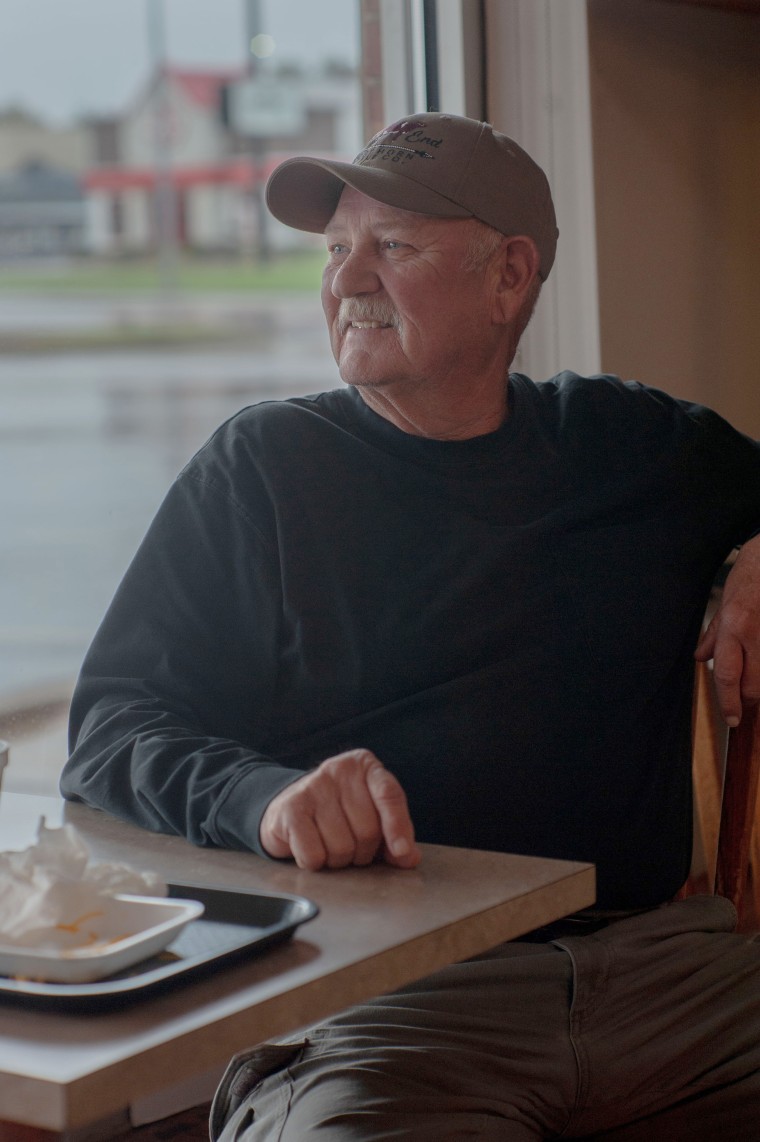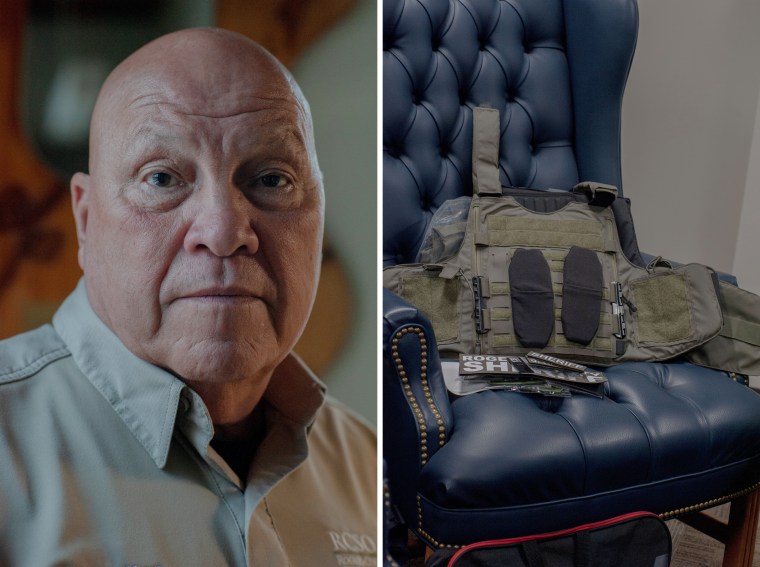“He kind of opened their eyes a little bit to what they’re actually doing, because it’s not something we should turn our heads from,” Russell said.
Her opinion did not seem to represent the majority view in this part of solid-red Oklahoma. Elected officials have welcomed the opportunity to help ICE deport unauthorized immigrants as the Trump administration wages its mass deportation campaign. Last week, Oklahoma’s attorney general joined a coalition of GOP counterparts from 23 states in an amicus brief urging the Supreme Court to allow Trump to declare that the 14th Amendment does not grant citizenship to people born on U.S. soil to noncitizen parents.
The humorist Will Rogers, who was born in Oologah before Oklahoma became a state, once said, “In the early days of Indian Territory, where I was born, there was no such things as birth certificates. You being there was certificate enough.” Rogers was Cherokee, and the county is named after his father.
A drive through Rogers County will inevitably pass by tributes to Rogers, herds of cattle behind fences and, increasingly, medical cannabis shops. Some bars in the county still allow smoking indoors, and there’s a good chance a given local coffee shop will include Christian iconography in its decor.
Many residents favor stricter enforcement of immigration rules but have qualms about the current process.
David Chappell, 69, who lives in Talala and said he employs Mexican nationals on visas in his concrete and mini-storage businesses, wants immigration rules followed, but he said the system is too rigid and arbitrary to keep reliable workers. Many of his employees have to return home for months at a time while they wait to renew their paperwork, leaving him conflicted as a Republican voter, he said.

“Am I going to get them back now, with all this crap that’s going on?” he said after finishing a lunch of two Coney dogs in Claremore. “I mean, now everything you’ve got is in jeopardy. Do I think they all need to be here? No. But how do you decide who comes and who doesn’t? How do they do that?”
He added: “I don’t know what I think.”
Rogers County Sheriff Scott Walton said immigration hasn’t been a big issue locally. He’d be glad to provide ICE with space in his jail, but federal authorities haven’t asked him for help.
Walton, a Republican who seemed to know someone everywhere he goes, said he’d prefer the government focus more on deporting undocumented immigrants sitting in jails and prisons than on work-site and street pickups.

“Let’s start enforcing what needs to be enforced,” he said. “But at the same time, if it’s just a numbers game — ‘Let’s go run through and grab a bunch of people so it looks like we’re doing something’ — I’m not in for that.”
At a shop selling knickknacks, pickles, lotion and other sundries in downtown Claremore, blocks away from Walton’s office, store clerk Devana Rowe, 23, said the argument in favor of deporting people strikes her, as a Cherokee, as a repeat of arguments used against Native Americans in centuries past. She believes a lot of the support for tougher immigration policies in the county stems from a lack of interaction with migrants, which she had more experience with when growing up in Tulsa.
“These people are real humans,” Rowe said, “and the only difference is that we have global luck — like we were just lucky to be born here, and that’s it.”
Source link

:max_bytes(150000):strip_icc()/Health-Steel-cut-Oats-vs-Greek-Yogurt-template-4017323fa6a143878b449d18632be232.jpg)
